Clearing 2025
Clearing places have been filled on this course for 2025 entry.
Egyptology
UCAS code V410
- Study mode
- Full-time
- Duration
- 3 years
- Start date and application deadlines
-
- Start date
Clearing places have been filled on this course for 2025 entry.
UCAS code V410
Immerse yourself in Ancient Egypt with one of the largest groupings of research active Egyptologists in the UK.
You will gain an in-depth understanding of Ancient Egypt’s archaeology, art, religion, history and society through the acquisition of key interpretive skills. This programme provides training in the Ancient Egyptian language from elementary to advanced level, giving you access to original hieroglyphic and Coptic writings and inscriptions. Our experts will bring their excavations and projects to the classroom, giving you privileged access to cutting-edge research.
You will be introduced both to the language (writing, grammar and texts) and the archaeology and history of Ancient Egypt, as well as to basic methods of archaeology. You will progress to study the language and texts of various periods, as well as Egyptian art, religion, history, and society. Final year students will have the opportunity to engage in independent Egyptological research.

We’re proud to announce we’ve been awarded a Gold rating for educational excellence.
Discover what you'll learn, what you'll study, and how you'll be taught and assessed.
Students will be introduced to the language (writing, grammar and texts) and to the archaeology, history and culture of Ancient Egypt.
Students take 45 credits of required modules and 15 credits of optional modules in each semester. Both optional modules must belong to the same pathway (either ‘archaeology’, or ‘ancient history’ or ‘classical studies’).
Students may take up to 15 credits of optional cognate modules outside of their degree programme with prior permission of the subject lead.
Programme details and modules listed are illustrative only and subject to change.
You will progress to study the language and texts of different time periods (including Coptic as an option), as well as Egyptian art, religion, history, and society.
In Semester 1, students take 60 credits of required modules. In semester 2, students take 45 credits of required modules and 15 credits of optional modules.
CLAH222 is subject to a suitable placement being sourced. Students cannot register directly for this module.
CLAH263 includes a five-day research and learning experience in Rome. For further details please contact the Module Convenor.
Students may take up to 15 credits of optional cognate modules outside of their degree programme with prior permission of the subject lead.
Programme details and modules listed are illustrative only and subject to change.
In the final year, you will study more specialised aspects of language and literature as well as further options in Egyptian material culture. Provision is also made for engaging in independent research in an Egyptological topic.
Students take 45 credits of required modules and 15 credits of optional modules in each semester.
ALGY450 is a ‘year-long’ module and represents 15 credits in each semester.
Students may take up to 15 credits of optional cognate modules outside of their degree programme with prior permission of the subject lead.
Students may only take ALGY288 or ALGY386 in their final year if they have not taken them before.
| Compulsory modules | Credits |
|---|---|
| SETTLEMENT ARCHAEOLOGY IN EGYPT (ALGY376) | 15 |
| ADVANCED EGYPTIAN TEXTS (ALGY373) | 15 |
| SOCIAL LIFE IN EGYPT (ALGY377) | 15 |
| LATE EGYPTIAN (ALGY374) | 15 |
| DISSERTATION (ALGY450) | 30 |
Programme details and modules listed are illustrative only and subject to change.
Egyptology, being the study of a specific human culture, shares approaches with many core subjects in the Faculty. As a result, studying 50% Egyptology would work particularly well with a large number of other programmes both ancient (eg archaeology, classics and ancient history) and more modern (eg english, sociology, history, languages or politics).
Modules are delivered by a mixture of lectures and seminars in year one, in year two the lecture element within modules is complemented by student led seminars. Finally, in year three, most modules are delivered by a short series of lectures with a focus on student-led seminars thereafter. Self-directed study is also expected through the course reading list and conducting research for your essays and projects. Academic staff area regularly available via their office hours for one-to-one feedback and support. Course material is available 24-hours a day on Canvas, our online learning platform, and study support is available from our dedicated student services team.
Egyptology is assessed in a variety of ways.
Examination: learning outcomes are demonstrated in student performance through preparation for and the sitting of an examination. Such examinations may cover essay-based work (usually by selection of a set number of questions), source analysis (usually by selection of questions or a commentary on an ancient source) or language work (mostly translation and commentary of set passages).
Assessed coursework, including essays, commentaries, posters, and projects: learning outcomes are demonstrated in student performance through the preparation and delivery of a piece of work as an act of self-directed learning with full access to all the relevant learning and research tools and supports.
Portfolio: a critical summary of seminars presented by students reflecting on the material discussed in seminars and subsequently researched and presented as a discussion of the topic or theme.
Class tests, primarily in language modules: learning outcomes are demonstrated with regards to understanding, analysing and applying structures and concepts of grammar and syntax.
Oral presentations: modules assess presentation skills and several modules require the use of Microsoft PowerPoint.
We have a distinctive approach to education, the Liverpool Curriculum Framework, which focuses on research-connected teaching, active learning, and authentic assessment to ensure our students graduate as digitally fluent and confident global citizens.
The Liverpool Curriculum framework sets out our distinctive approach to education. Our teaching staff support our students to develop academic knowledge, skills, and understanding alongside our graduate attributes:
Our curriculum is characterised by the three Liverpool Hallmarks:
All this is underpinned by our core value of inclusivity and commitment to providing a curriculum that is accessible to all students.
The qualifications and exam results you'll need to apply for this course.
| Qualification | Details |
|---|---|
| A levels |
BCC |
| BTEC Level 3 national extended diploma |
DMM. |
| BTEC combinations |
BTEC National Diploma MM plus B at A level; BTEC National Extended Certificate M plus BC at A level |
| Welsh Baccalaureate Advanced |
C in the Welsh Baccalaureate, plus BC at A level |
| Access |
Pass relevant Access to HE Diploma with 45 Level 3 credits with 27 at Distinction and 18 at Merit |
Studying with us means you can tailor your degree to suit you. Here's what is available on this course.
University of Liverpool students can choose from an exciting range of study placements at partner universities worldwide. Choose to spend a year at XJTLU in China or a year or semester at an institution of your choice.
Immerse yourself in Chinese culture on an optional additional year at Xi'an Jiaotong Liverpool University in stunning Suzhou.
Broaden your world by spending an additional year of study at a partner university abroad following your second year of study.
Take a semester of your second year of study at one of our worldwide partner institutions.
Spend a summer abroad on a study placement or research project at one of our worldwide partner institutions.
Every student at The University of Liverpool can study a language as part of, or alongside their degree. You can choose:
With a combined degree, you can study two subjects as part of the same degree programme.
Explore combined degrees for Archaeology, Classics and Egyptology courses
The Department of Archaeology, Classics and Egyptology is part of the School of Histories, Languages and Cultures. Teaching takes place across campus, including in specialist facilities in the Central Teaching Hub and Garstang Museum of Archaeology.
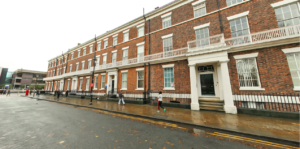
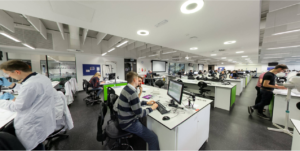
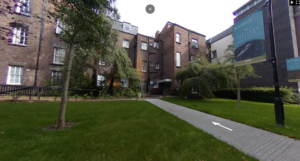
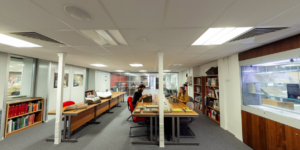
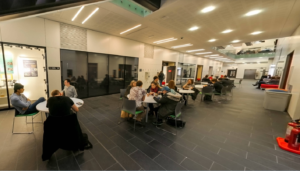
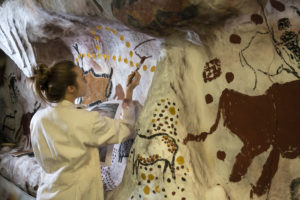
From arrival to alumni, we’re with you all the way:

Want to find out more about student life?
Chat with our student ambassadors and ask any questions you have.
Students who graduate from Egyptology are equipped with a diverse set of skills required for employment, or advanced study in Egyptology or related disciplines.
Recent employers include:
88% of Archaeology, Classics and Egyptology students go on to work or further study within 15 months of graduation.
(Graduate Outcomes, 2018-19.)
Your tuition fees, funding your studies, and other costs to consider.
Full-time place, per year - £9,535
Year abroad fee - £1,430 (applies to year in China)
Full-time place, per year - £24,100
Year abroad fee - £12,050 (applies to year in China)
The tuition fees shown are correct for 2025/26 entry. Please note that the year abroad fee also applies to the year in China.
Tuition fees cover the cost of your teaching and assessment, operating facilities such as libraries, IT equipment, and access to academic and personal support. Learn more about paying for your studies.
We understand that budgeting for your time at university is important, and we want to make sure you understand any course-related costs that are not covered by your tuition fee. This includes specialist equipment and fieldwork costs.
Students will be required to cover the costs listed below for year one compulsory fieldwork- two weeks in Penycloddiau, North Wales:
In year two, those who must complete a further two weeks of fieldwork have several options with varying costs. Some options are based in the UK and have no additional costs, others are based abroad. For those choosing to join a site abroad, students will be expected to pay for their own flights, accommodation, and sustenance. The costs for this vary from site to site.
We offer a range of scholarships and bursaries that could help pay your tuition and living expenses.
If you’re a UK student joining an undergraduate degree and have a household income below £35,000, you could be eligible for a Liverpool Bursary worth up to £2,000 for each year of undergraduate study.
Apply for an Asylum Seekers Scholarship and you could have your tuition fees paid in full and receive help with study costs. You’ll need to have applied for asylum in the UK, or be the dependant of an asylum seeker, and be joining an eligible undergraduate degree.
If you’ve spent 13 or more weeks in Local Authority care since age 14, you could be eligible for a bursary of £3,000 per year of study. You’ll need to be a UK student joining an eligible undergraduate degree and be aged 28 or above on 1 September in the year you start.
Are you a UK student with a Black African or Caribbean heritage and a household income of £25,000 or less? You could be eligible to apply for a Cowrie Foundation Scholarship worth up to £8,000 for each year of undergraduate study.
If you’re a UK student identified as estranged by Student Finance England (or the equivalent UK funding body), you could be eligible for a bursary of £1,000 for each year of undergraduate study.
Joining a School of Biosciences degree and have a household income of less than £25,000? If you’re a UK student, you could apply to receive £4,500 per year for three years of your undergraduate course.
Do you live in the Liverpool City Region with a household income of £25,000 or less? Did neither of your parents attend University? You could be eligible to apply for a Nolan Scholarship worth £5,000 per year for three years of undergraduate study.
Are you a UK student with a household income of £25,000 or less? If you’ve participated in an eligible outreach programme, you could be eligible to apply for a Rigby Enterprise Award worth £5,000 per year for three years of your undergraduate degree.
Are you a UK student with a household income of £25,000 or less? Did neither of your parents attend University? You could be eligible to apply for a ROLABOTIC Scholarship worth £4,500 for each year of your undergraduate degree.
Apply to receive tailored training support to enhance your sporting performance. Our athlete support package includes a range of benefits, from bespoke strength and conditioning training to physiotherapy sessions and one-to-one nutritional advice.
Joining a degree in the School of Electrical Engineering, Electronics and Computer Science? If you’re a UK student with household income below £25,000, you could be eligible to apply for £5,000 a year for three years of study. Two awards will be available per academic year.
If you’re a young adult and a registered carer in the UK, you might be eligible for a £1,000 bursary for each year of study. You’ll need to be aged 18-25 on 1 September in the year you start your undergraduate degree.
Have a question about this course or studying with us? Our dedicated enquiries team can help.
Last updated 15 August 2025 / / Programme terms and conditions